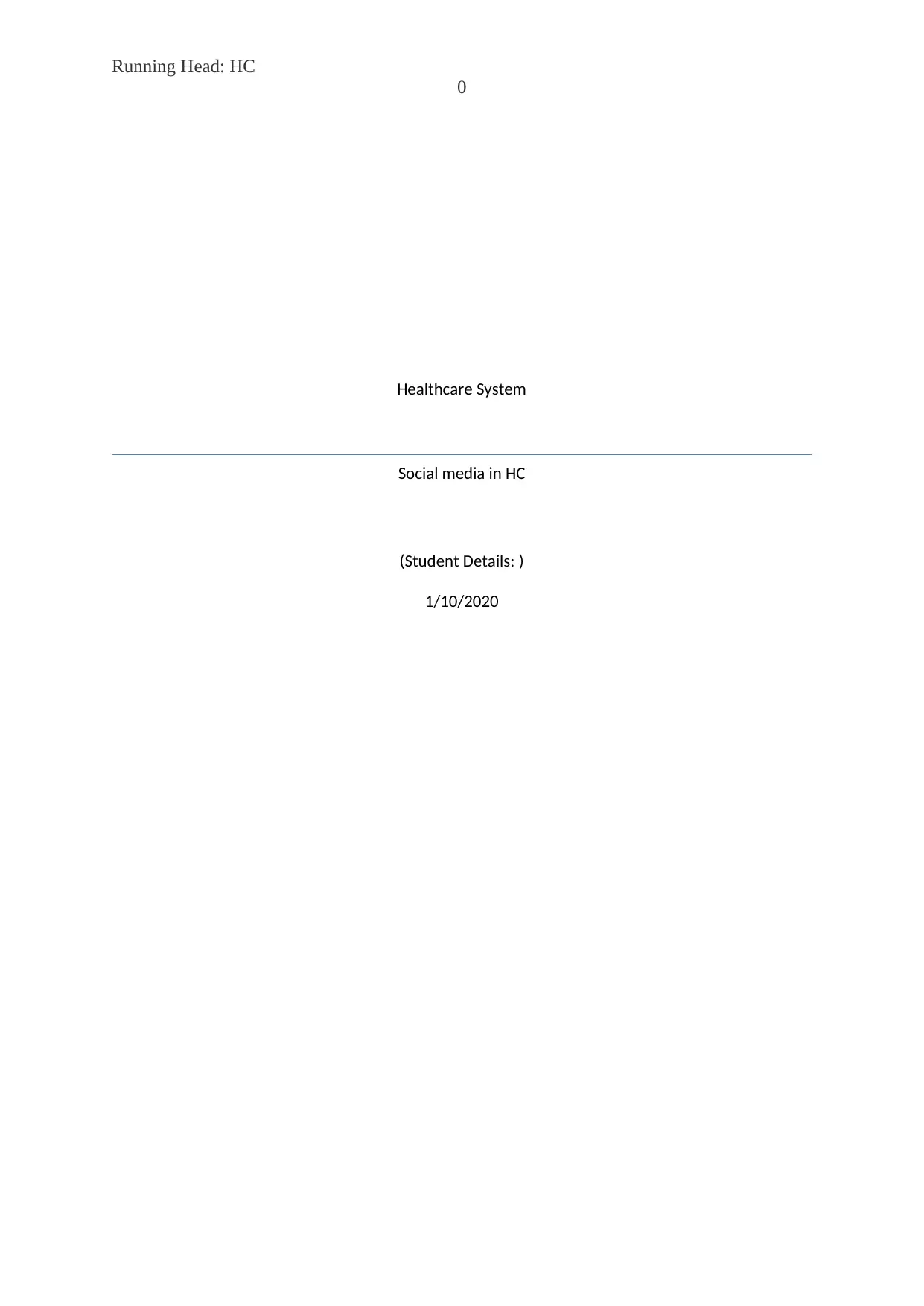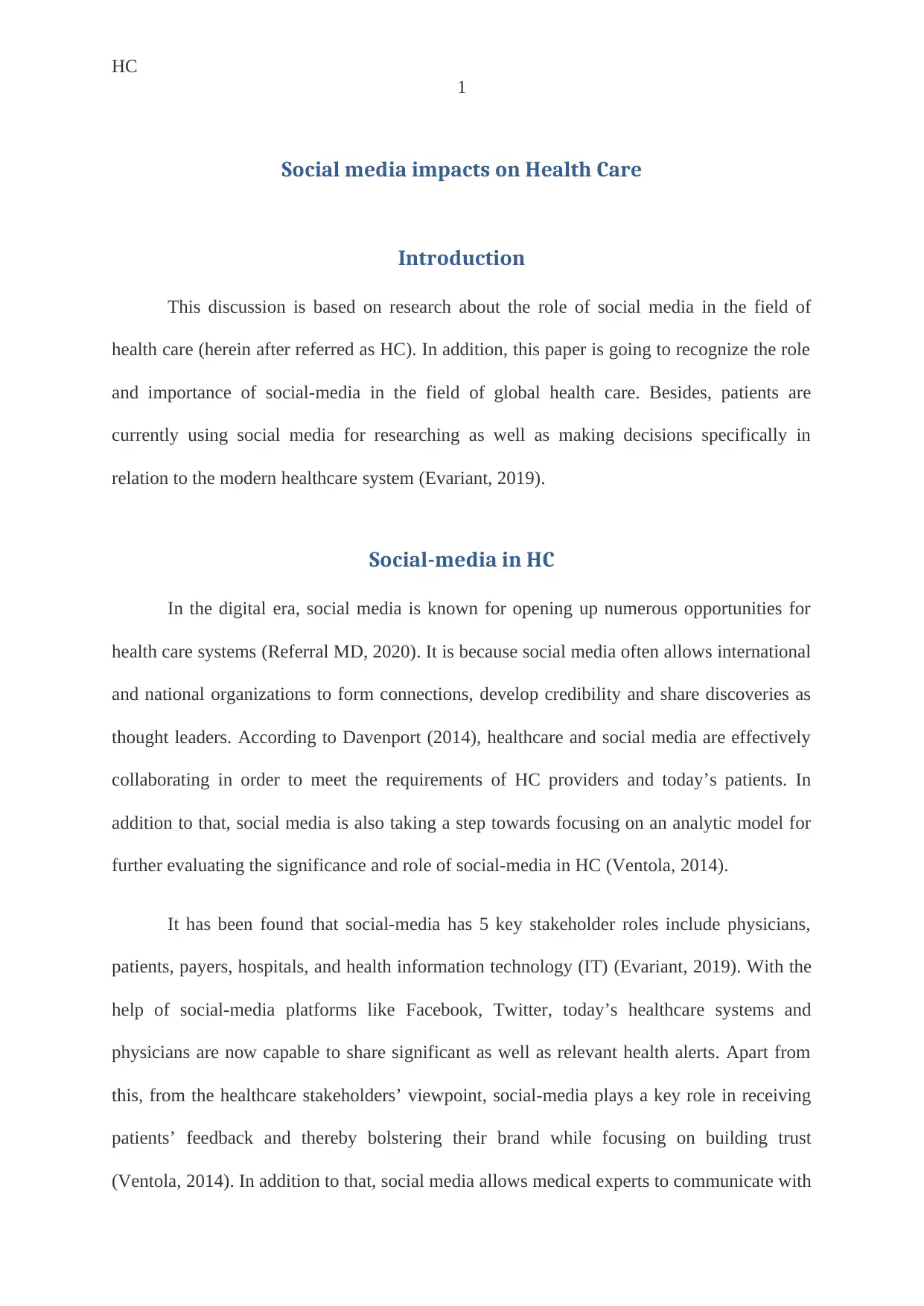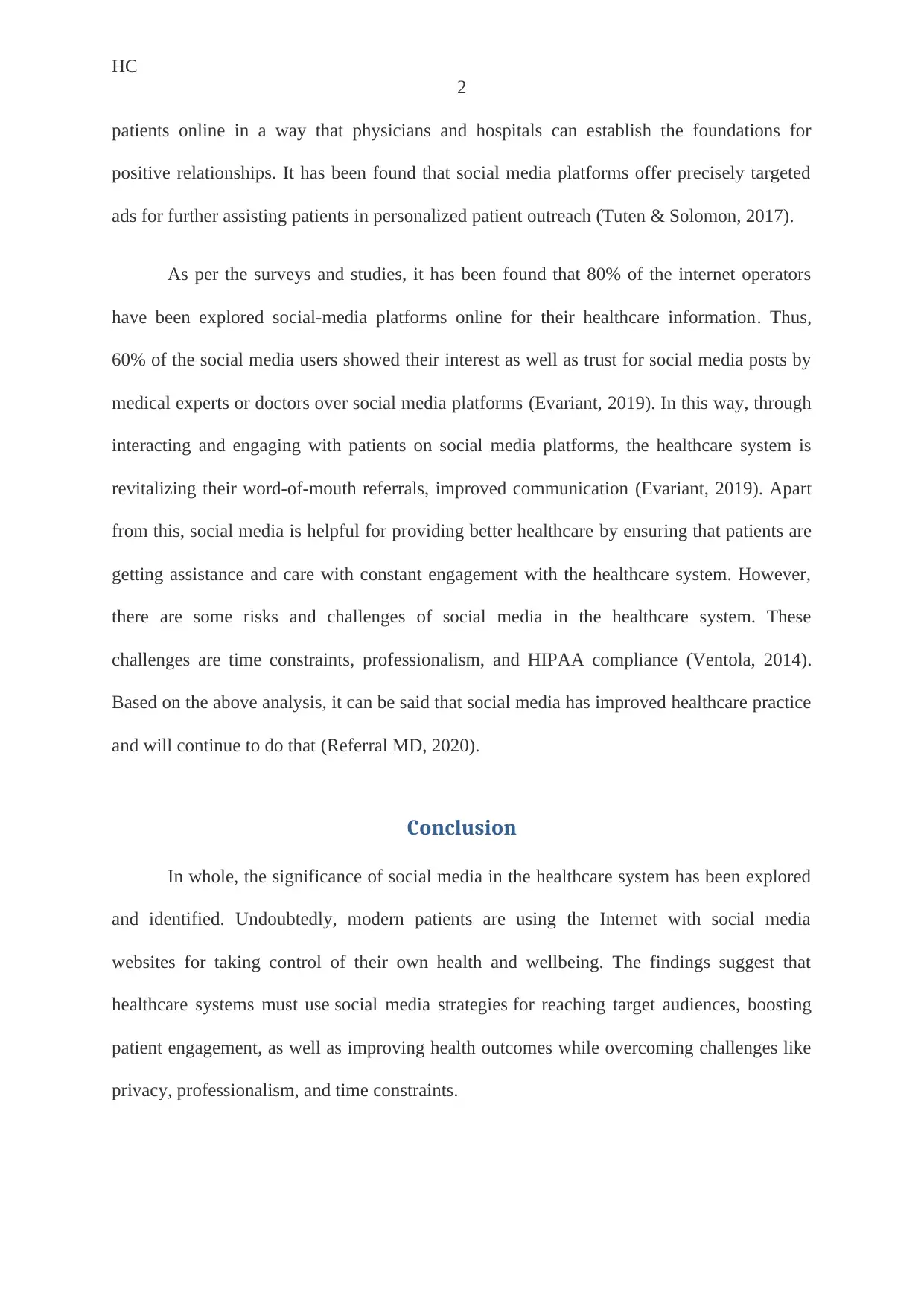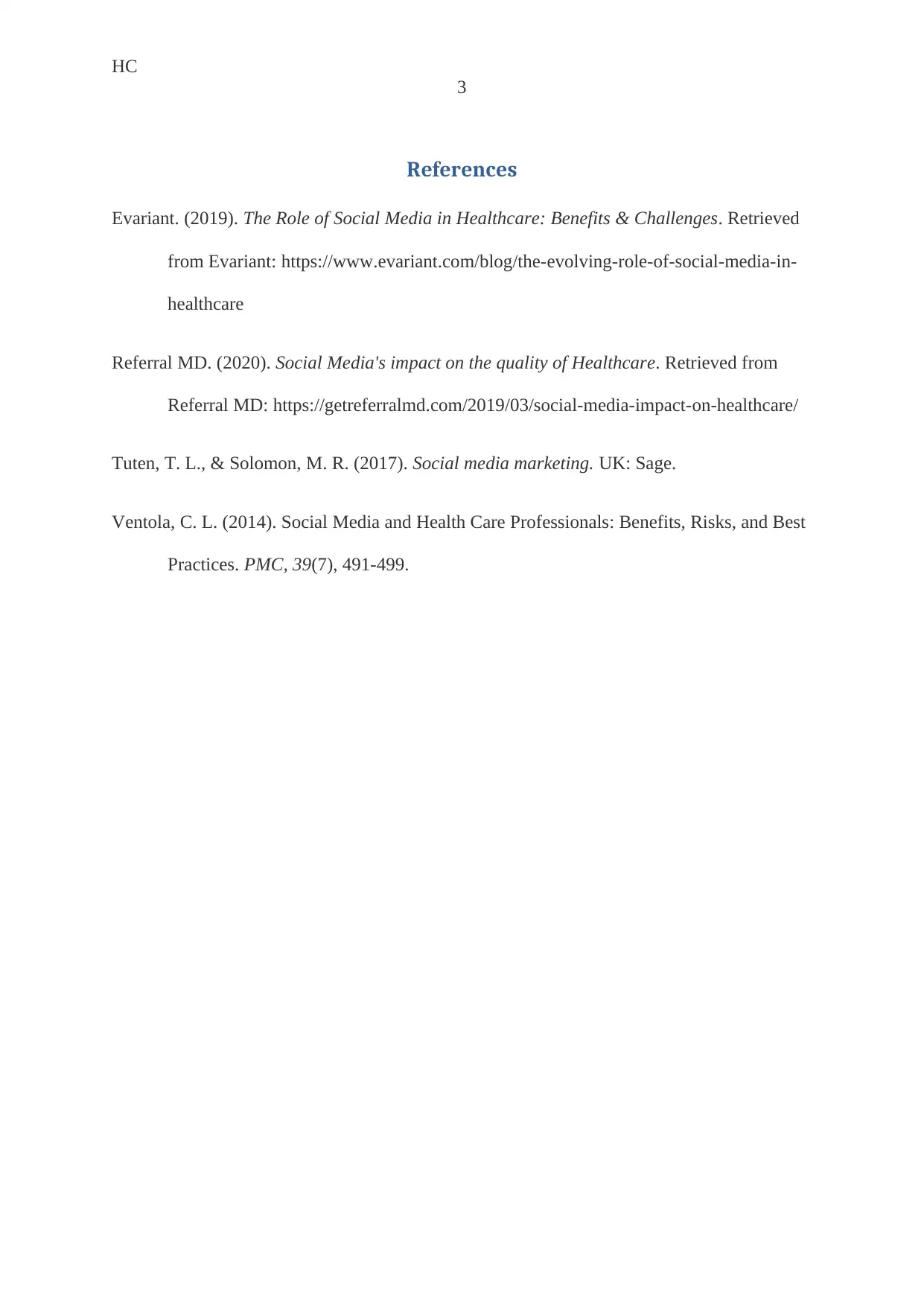Social Media's Influence on Healthcare: Benefits and Challenges
VerifiedAdded on 2022/08/26
|4
|751
|18
Report
AI Summary
This report delves into the significant impact of social media on the healthcare system. It highlights how social media platforms, such as Facebook and Twitter, are utilized by healthcare providers and patients alike. The report discusses the benefits, including improved communication, patient engagement, and the ability to share health alerts and information. It also acknowledges the challenges, such as time constraints, professionalism concerns, and HIPAA compliance. The analysis underscores the importance of social media strategies for healthcare systems to reach target audiences, boost patient engagement, and improve health outcomes while addressing challenges. The report references several sources to support its findings and concludes that social media will continue to shape healthcare practices. This assignment is available on Desklib, a platform offering valuable resources for students, including past papers and solved assignments.
1 out of 4











![[object Object]](/_next/static/media/star-bottom.7253800d.svg)